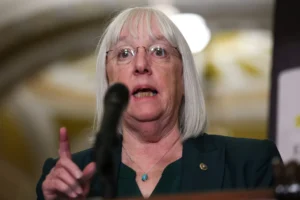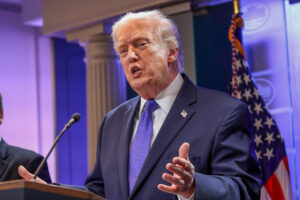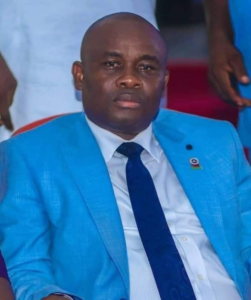Thousands of demonstrators formed a human chain in Tbilisi, Georgia’s capital, on Saturday, as the nation faces a growing political crisis. The protest occurred just ahead of the controversial inauguration of Mikheil Kavelashvili, a former Manchester City footballer and ally of the ruling Georgian Dream party, as the country’s new president.
Outgoing President Salome Zourabichvili has refused to step down, labeling Kavelashvili’s election as illegitimate. “I will not abandon this office to the Georgian Dream’s authoritarian grip,” she declared earlier this week.
Kavelashvili’s unopposed victory through an electoral college system has been marred by allegations of fraud. The Georgian Dream party, which secured a contested parliamentary win in October, has been accused of undermining democratic processes. The opposition has rejected the presidency and boycotted parliament, intensifying political tensions.
“This protest is about safeguarding Georgia’s future as a democratic and free nation,” said a demonstrator waving Georgian and EU flags during the human chain.
The ruling party has faced increasing criticism for authoritarian policies, including laws targeting media outlets, NGOs, and the LGBTQ+ community. Its decision to abstain from Western sanctions on Russia after the invasion of Ukraine has further alienated pro-European citizens.
Despite the constitution enshrining Georgia’s EU aspirations, Georgian Dream recently delayed accession talks until 2028, sparking widespread protests. Riot police responded with tear gas and water cannons, leading to clashes as protesters retaliated with fireworks and stones.
Adding to the unrest, the United States imposed sanctions on Georgian Dream’s billionaire founder and former prime minister Bidzina Ivanishvili, accusing him of undermining democracy. The party’s rhetoric, including labeling the West as a “global war party,” has deepened divisions in a country striving to align with NATO and EU ideals.
The ongoing protests reflect a broader battle for Georgia’s identity and its place in the international community.



























